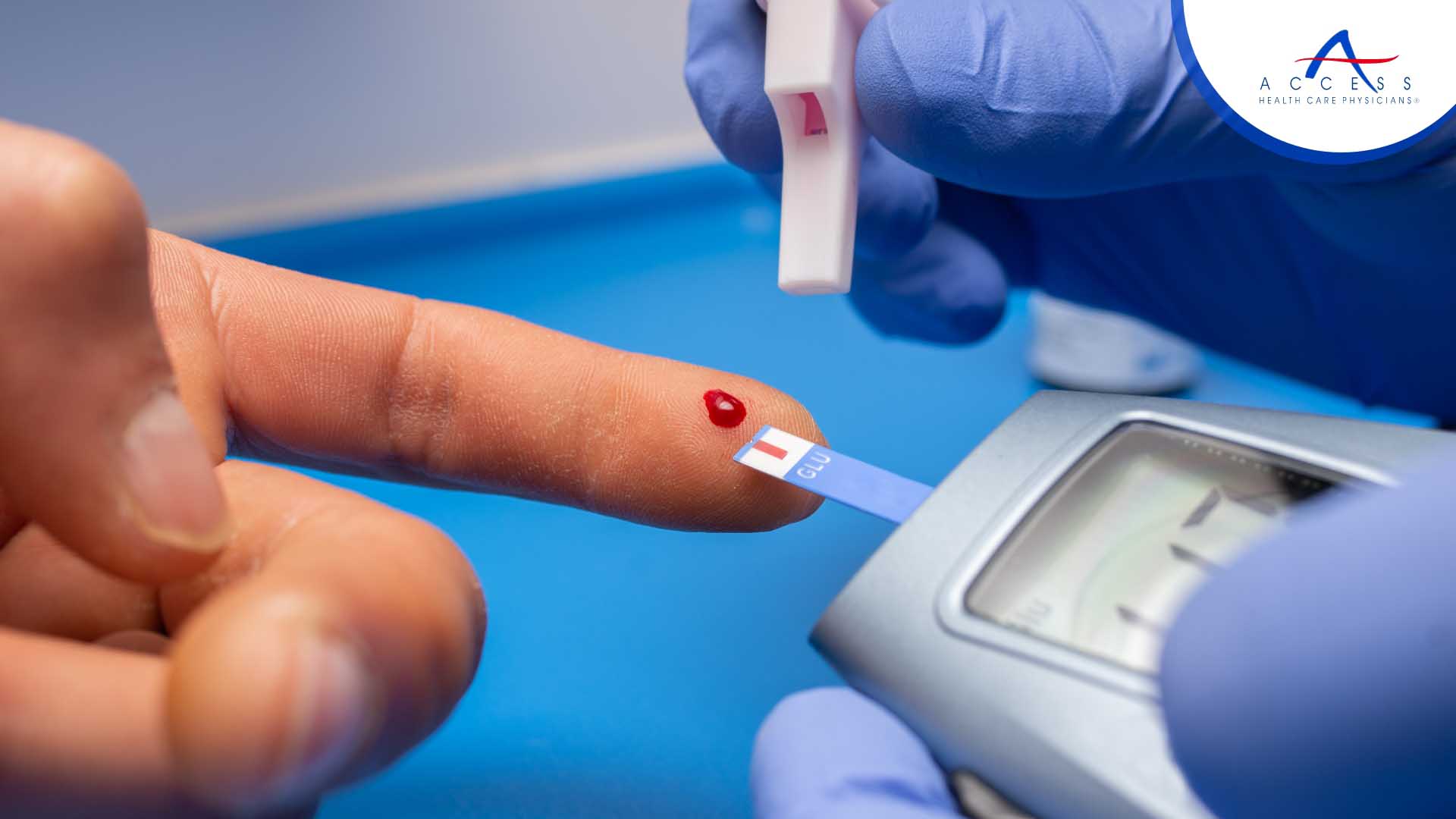A chronic disease, type 2 diabetes affects millions of people globally. High blood sugar levels caused by the body's ineffective use of insulin are a defining feature of the disease. Despite the fact that there is no known cure for type 2 diabetes, it can be successfully managed with medication and lifestyle adjustments recommended by your primary care physician. In this blog, we'll talk about the causes of type 2 diabetes and how to avoid it.
Causes of Type 2 Diabetes:
There are several risk factors that contribute to the development of type 2 diabetes. Some of these include:
- Genetics: If diabetes runs in your family, you are more likely to develop it.
- Obesity: Obesity and being overweight are significant risk factors for type 2 diabetes. High blood sugar levels are caused by insulin having trouble working properly when there is too much body fat present.
- Sedentary lifestyle: Lack of physical activity reduces insulin sensitivity, leading to high blood sugar levels.
- Unhealthy diet: A diet high in sugar, refined carbohydrates, and unhealthy fats increases your risk of developing type 2 diabetes.
- Age: As you get older, your chance of developing type 2 diabetes rises.
Ways to Prevent Type 2 Diabetes:
There are several lifestyle changes you can make to lower your chance of developing type 2 diabetes, even though some risk factors, like age and genetics, are uncontrollable. It is recommended that you conduct regular tests and consult your doctor often. If you do not have a go-to doctor, visit the physician directory offered by Access Health Care Physicians and find one near you..
Here are a few strategies for preventing type 2 diabetes:
1. Maintain a Healthy Weight:
Maintaining a healthy weight is one of the most effective ways to prevent type 2 diabetes. Losing even a small amount of weight can improve insulin sensitivity and lower your risk of developing the condition. Aim to maintain a body mass index (BMI) of between 18.5 and 24.9.
2. Exercise Regularly:
Your chance of developing type 2 diabetes can be lowered by engaging in regular physical activity. Your body can use insulin more efficiently if you exercise to increase insulin sensitivity. Try to get 150 minutes or more of moderate-intensity activity each week. This can include exercises like cycling, swimming, or brisk strolling.
3. Eat a Healthy Diet:
A healthy diet is crucial in preventing type 2 diabetes. Avoid foods high in sugar, refined carbohydrates, and unhealthy fats. Instead, focus on a diet that is rich in fruits, vegetables, whole grains, lean protein, and healthy fats. These foods can help improve insulin sensitivity and keep your blood sugar levels stable.
4. Limit Alcohol Intake:
Drinking too much alcohol can increase your risk of developing type 2 diabetes. If you choose to drink, limit your intake to no more than one drink per day for women and two drinks per day for men.
5. Quit Smoking:
Smoking increases your risk of developing type 2 diabetes. Quitting smoking can help improve insulin sensitivity and reduce your risk of developing the condition.
6. Manage Stress:
Chronic stress can increase your risk of developing type 2 diabetes. Find ways to manage stress, such as meditation, yoga, or deep breathing exercises.
7. Get Enough Sleep:
Getting enough sleep is important in preventing type 2 diabetes. Lack of sleep can increase insulin resistance, leading to high blood sugar levels. Aim to get between 7 and 9 hours of sleep per night.
8. Regular Medical Check-ups:
Any early symptoms of type 2 diabetes can be found with the aid of routine medical examinations. Your doctor might advise routine blood sugar checks to monitor your levels if you have a high chance of developing the condition. Conducting a regular blood test is also recommended to stay updated and in tune with your health levels.
While some risk factors, such as genetics and age, cannot be controlled, there are several lifestyle changes that you can make to reduce your risk of developing the condition.


